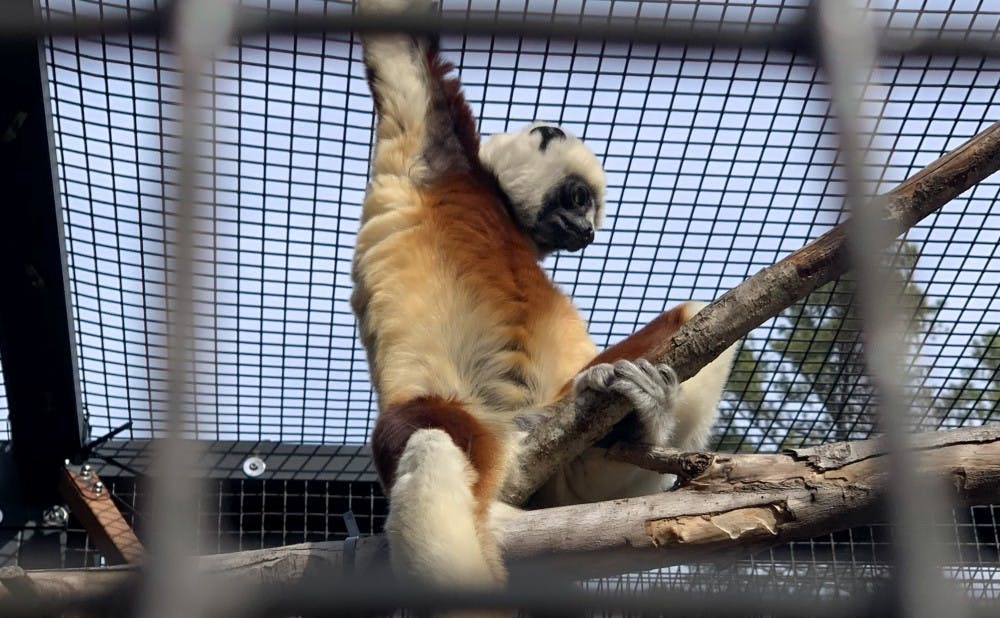Even lemurs haven’t escaped the changes brought by a global pandemic.
Like many institutions grappling with the pandemic, the Duke Lemur Center was forced to pivot with COVID-19, eliminating its ability to host visitors. In light of these new restrictions, the center has adopted new methods of outreach and has shifted events to a virtual format while upholding the care and conservation of lemur populations at the heart of its mission.
While the center has been closed to visitors since Mar. 13 to ensure the health of visitors and primates, virtual tours and programs have been offered in lieu of physical visits.
“The DLC houses more than 200 lemurs—more than anywhere in the world outside of Madagascar. Of those 200, only a handful live along the public tour path; so the vast majority of our residents have not experienced any differences at all.” wrote Sara Clark, Director of Communications and Guest Experience Manager, in an email.
The lemurs are wild animals that naturally live without human contact, and their social needs are fulfilled by being around other lemurs. They are housed in “natural social groups” which allow them to gain companionship from the other lemurs at the center, Clark wrote.
The lemur center’s conservation work in Northern Madagascar to support the local wildlife and forests has continued throughout the pandemic, due to its in-country staff and partners. These conservation breeding programs are critical to lemur conservation, and the center upholds the world’s largest genetic safety net for lemurs, an endangered species.
On-site research on hibernation and the gut microbiome has also continued despite the pandemic, led by two on-staff scientists. The volunteer program is temporarily closed, but this has not stopped people from logging hours: Over 6,500 hours of service were contributed in the last year, with volunteers adopting creative methods of remote work.
The lemur center has also been providing online events that have been well-attended, with weekly virtual chats drawing an audience of over 11,000, including students from 32 states and six provinces in Canada, India, Brazil, the United Kingdom and Mexico, according to Clark.
Additionally, the center has launched an online merchandise partnership with the Duke Store to supplement income at a time when events and merchandise, which usually contribute 21% of the annual budget, have taken different forms.
However, the center’s financial constraints have led to reduced staff hours in certain departments and reassignments to new roles that are in demand of more labor. Clark noted that the education staff, who usually conduct tours and outreach events, have begun working on online fundraising.
Clark emphasized that care for the lemurs has been upheld during this time, with veterinary staff maintaining their usual hours “to ensure that the lemurs continue to receive the same high quality of care that they have always had,” she wrote.
The center has several ways for students to support the lemurs, ranging from sending a lemur a valentine for $25 to support the conservation breeding program to buying virtual tours, or even sending a lemur a present through an Amazon wishlist. The lemur center, much like the rest of the University, is eager to welcome back students and visitors when other circumstances allow.
Get The Chronicle straight to your inbox
Sign up for our weekly newsletter. Cancel at any time.

